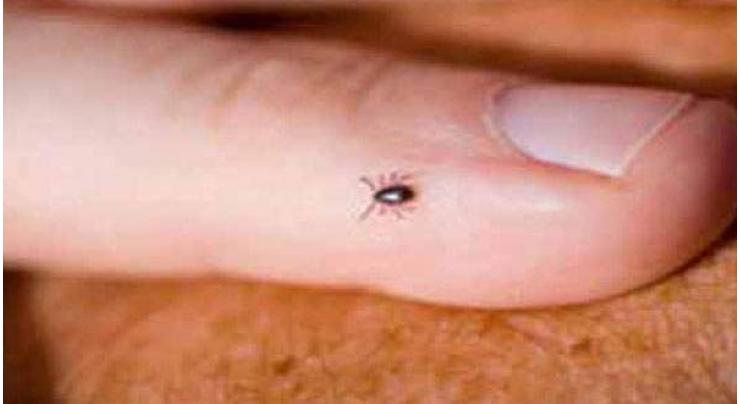
Health Experts For Preventive Measures Against Congo
Fahad Shabbir (@FahadShabbir) Published August 19, 2016 | 04:59 PM

ISLAMABAD, (UrduPoint / Pakistan Point News - 19th Augst,2016) : Health experts on Friday advised the citizens to take special preventive measures to protect from carrying Crimean Congo hemorrhagic fever (CCHF). According to them, healthcare workers caring for patients with suspected or confirmed Congo virus, or handling specimens from them, should implement standard infection control precautions.
These include basic hand hygiene, use of personal protective equipment, safe injection practices and safe burial practices Dr Wasim Khawaja, a public health specialist at Pakistan Institute of Medical Sciences (PIMS), said reducing the risk of tick-to-human transmission people should wear protective clothing like long sleeves or long trousers and wear light coloured clothing to allow easy detection of ticks on the clothes. He said people should use approved chemicals intended to kill ticks on clothing, use approved repellent on the skin and clothing, regularly examine clothing and skin for ticks, if found, remove them and avoid areas where ticks are abundant and seasons when they are most active. Dr Khawaja said in order to reducing the risk of animal-to-human transmission people should wear gloves and other protective clothing while handling animals or their tissues in endemic areas, notably during slaughtering, butchering and culling procedures in slaughterhouses or at home. He added to reduce the risk of human-to-human transmission in the community, people should avoid close physical contact with CCHF-infected people, wear gloves and protective equipment when taking care of ill people and wash hands regularly after caring for or visiting ill people. Medical practitioner at Federal Government Poly Clinic (FGPC) Dr Sharif Astori said the virus is primarily transmitted to people from ticks and livestock animals.
He added human-to-human transmission can occur resulting from close contact with the blood, secretions, organs or other bodily fluids of infected persons. He said CCHF is a widespread disease caused by a tick-borne virus.
The hosts of the CCHF virus included a wide range of wild and domestic animals such as cattle, sheep and goats. He said animals become infected by the bite of infected ticks and the virus remains in their bloodstream for about one week after infection, allowing the tick-animal-tick cycle to continue when another tick bites.
The CCHF virus is transmitted to people either by tick bites or through contact with infected animal blood or tissues during and immediately after slaughter, he added. He said majority of cases have occurred in people involved in the livestock industry, such as agricultural workers, slaughterhouse workers and veterinarians. He said human-to-human transmission can occur resulting from close contact with the blood, secretions, organs or other bodily fluids of infected persons.
Hospital-acquired infections can also occur due to improper sterilization of medical equipment, reuse of needles and contamination of medical supplies, he added. He said following infection by a tick bite, the incubation period is usually one to three days, with a maximum of nine days. The incubation period following contact with infected blood or tissues is usually five to six days, with symptoms included fever, muscle ache, dizziness, neck pain and stiffness, backache, headache, sore eyes and photophobia (sensitivity to light).
He said there may be nausea, vomiting, diarrhoea, abdominal pain and sore throat early on, followed by sharp mood swings and confusion. After two to four days, the agitation may be replaced by sleepiness, depression and lassitude, and the abdominal pain may localize to the upper right quadrant, with detectable hepatomegaly (liver enlargement). He said other clinical signs included fast heart rate), enlarged lymph nodes, and a rash caused by bleeding into the skin on internal mucosal surfaces, such as in the mouth and throat, and on the skin.
Dr Astori said there is usually evidence of hepatitis, and severely ill patients may experience rapid kidney deterioration, sudden liver failure or pulmonary failure after the fifth day of illness. The mortality rate from CCHF is approximately 30%, with death occurring in the second week of illness.
In patients who recover, improvement generally begins on the ninth or tenth day after the onset of illness.
Related Topics
Recent Stories

Currency Rate In Pakistan - Dollar, Euro, Pound, Riyal Rates On 28 April 2024

Today Gold Rate in Pakistan 28 April 2024

Fresh wave of rainfall in AJK continues for the second consecutive day

Babar, bowlers help Pakistan level series 2-2 against New Zealand

Attack in restive Chilean province leaves three police officers dead

PM, Saudi Royal court advisor discuss ways to boost economic ties

England clinch third successive Women's Six Nations Grand Slam

DC Bahawalnagar leads fight for fair bread prices

Sheffield Utd relegated from Premier League

02 proclaimed offenders arrested by Wah Police

Pakistan level T20I series with nine-run victory over New Zealand

Minister meets Chinese Consul General, discusses bilateral cooperation, Chinese ..
More Stories From Pakistan
-
PM attends Special Dialogue, Gala Dinner hosted by Saudi Crown Prince
9 hours ago -
Hazro murder case solved as deceased’s friend confesses
9 hours ago -
Deputy PM, SG DCO discuss ways to bridge digital divide
9 hours ago -
DIG Lahore lauds CPO for best initiatives for public facilitation
10 hours ago -
Polio immunization campaign to launch on Monday
10 hours ago -
Saudi minister declares PM Shehbaz "Man of Action" as he highlights Pakistan's investment potential, ..
10 hours ago
-
MQM-P concerned over increasing number of measles cases
10 hours ago -
Sindh Police warns against buying stolen auto parts, goods
10 hours ago -
Acid throwing incident ccurred in Bahawalnagar
10 hours ago -
DCM Schofer for efforts to fight climate change
11 hours ago -
Pakistani Zaireen attend annual Urs at Dargah Hazrat Amir Khusro
11 hours ago -
LESCO collects over Rs 3.36m from 271 defaulters in 24 hours
11 hours ago